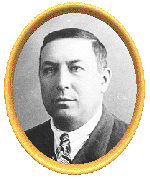|

“A Master of Openings, Pawn structures and Endgame” |
Akiba Kivelovic Rubinstein was born December 12, 1882 in the Polish border town of Stawiski. He learned to play Chess at the age of 16 in school where he played his classmates, and afterwards, his thoughts were on nothing else. He gave up theological studies for a professional Chess career. In 1903 he placed 5th at a tournament in Kiev. After a few years of skill development, Rubinstein entered the international scene being a
 powerful force to contend and was one of the world’s dominant players from 1905 to 1911.
As we learn of his many historical achievements, keep in mind that Rubinstein had a nervous disorder known as anthrophobia (fear of people and society) for his entire life. His poor mental health was clearly an extremely difficult disability for him to contend with and caused him enormous suffering throughout his life. But, in spite of his disability, Rubinstein was able to compete brilliantly for many years with the best Chess players in the world and his games are studied and treasured to this day.
In 1910, when Schlecter challenged Emanuel Lasker for the World Champion title, many considered Rubinstein to be the best Chess player in the world. In those days the challenger to the World Champion was required to raise the money and finance the match. The World Champion alone would decide which challenger to play and this was largely based on the funding available.
Rubinstein never had a chance to play for the Chess World Championship but he was considered the strongest Chess player who did not have the opportunity to compete for the title. powerful force to contend and was one of the world’s dominant players from 1905 to 1911.
As we learn of his many historical achievements, keep in mind that Rubinstein had a nervous disorder known as anthrophobia (fear of people and society) for his entire life. His poor mental health was clearly an extremely difficult disability for him to contend with and caused him enormous suffering throughout his life. But, in spite of his disability, Rubinstein was able to compete brilliantly for many years with the best Chess players in the world and his games are studied and treasured to this day.
In 1910, when Schlecter challenged Emanuel Lasker for the World Champion title, many considered Rubinstein to be the best Chess player in the world. In those days the challenger to the World Champion was required to raise the money and finance the match. The World Champion alone would decide which challenger to play and this was largely based on the funding available.
Rubinstein never had a chance to play for the Chess World Championship but he was considered the strongest Chess player who did not have the opportunity to compete for the title.
In 1912, Akiba Rubinstein won tournament after tournament: he won five consecutive International tournaments and the year was dubbed the Rubinstein year, this had never been done before in the history of Chess!
Fifty years later Bent Larsen won five tournaments in a row, however it took him three years to achieve this while Rubinstein won at San Sebastian, Pistyan, Breslau, Warsaw and Vilna all in the same year. Everybody demanded a match between
Akiba Rubinstein and Emanuel Lasker, clearly the only player who was close to Rubinstein in strength.
Sadly, this match never took place.
The beginning of deep psychological problems that eventually turned into full-fledged mental illness, the appearance of the Cuban Chess genius Capablanca, and the advent of World War I all combined to dash his championship hopes. In 1914 Nicholas II, the Czar of Russia, organized a tournament in St. Petersburg and invited all the greatest players in the world. The top five finishers would be given the title “Grandmaster.”
Tragically, Akiba Rubinstein failed to qualify in the top five.
Though he remained one of the world’s strongest players until about 1921, his pathological shyness and the erosion of his confidence led to a gradual disintegration of his powers. After World War I, Rubinstein continued to play in tournaments with moderate success but he did not revisit his former high level of play until he won the Vienna tournament in 1922, ahead of Alexander Alekhine and Richard Reti.
Rubinstein’s style formed a bridge between the styles of Steinitz and the players of today.
A mastery of openings, a deep understanding of the consequences of different types of pawn structures, and a skill in the endgame that has never been surpassed, were all part of his repertoire. Most notable, however, was his ability to connect the openings he played with the kinds of endgames that could be reached from them.
This incredibly deep planning is commonly seen in modern champions, but it was virtually unheard of in Rubinstein’s day.
Among the Chess players who deserve our highest reverence, Akiba Rubinstein stands out as a unique contributor to Chess. His noble career and life of great suffering stands as a beacon of light to all who study the game of Chess as well as those who study life itself. Today, Rubinstein’s games are carefully studied by all the finest players.
His moves and concepts still seem fresh, his handling of the endgame is still remarkable, and his opening ideas are still all the rage.
After 1932, Rubinstein never competed in
Chess tournaments again, although he was invited to do so. His lifelong struggle with his mental health worsened and he spent time in a sanitarium.
However, there was a bright side to this because it is possible that this protected him from the Germans during World War II and he was left alone. He spent his final years until his death in 1961 with his family in Belgium.
|